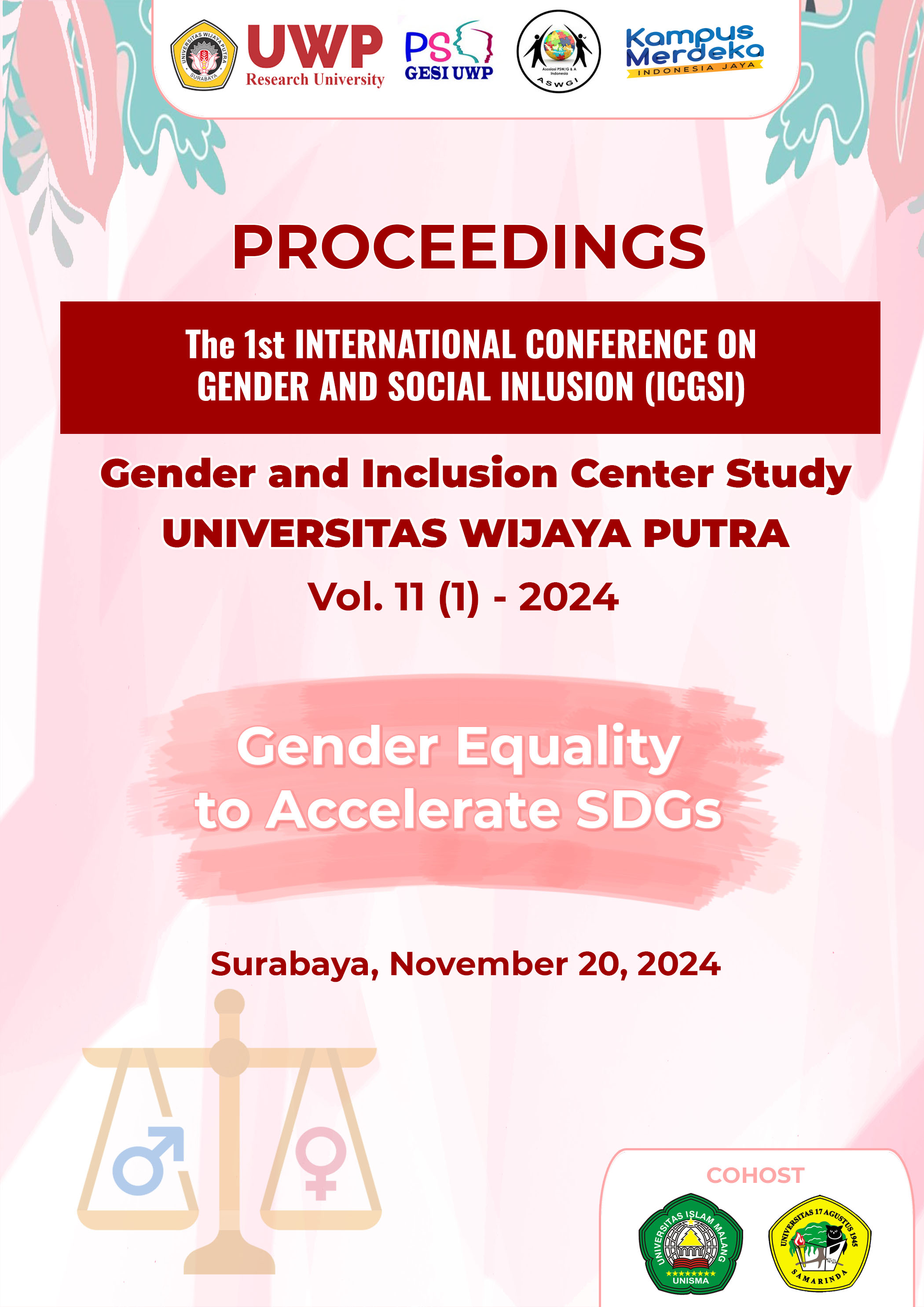From Women to Women: The Link between Women's Political Leadership and Pro-Women Policies in Indonesia
DOI:
https://doi.org/10.38156/gesi.v9i1.364Kata Kunci:
Women's political leadership, public policy, gender perspectiveAbstrak
This study explores the relationship between women's political leadership and pro-women public policies in Indonesia. This study answers the critical question of whether women's political leadership necessarily influences the production of pro-women public policies. By using literature review methods and critical previous research, this study found that although there has been significant progress in women's participation in the field of political leadership (both executive and legislative) from the actor side, there are still major obstacles in terms of public policy production caused by women. by a deep-rooted patriarchal culture and production of pro-women public policies that are pro-women are incapable. This study concludes the importance of integrating gender perspectives into the public policy process to produce public policies that are pro-women in the context of women for women.
Referensi
Amanah, D. A., Nurbayani, S., Komariah, S., & Nugraha, R. A. (2023). Dinamika Peran Perempuan Sunda Dalam Kepemimpinan Politik Era Modern. Jurnal Analisa Sosiologi, 12(2).
Artisa, R. A. (2017). Perempuan dalam Birokrasi Hambatan Kepemimpinan Perempuan dalam Birokrasi Pemerintah Provinsi DIY. Jurnal Pembangunan dan Kebijakan Publik, 5(1), 16-23.
Ferreira, F., & Gyourko, J. (2014). Does gender matter for political leadership? The case of US mayors. Journal of Public Economics, 112, 24-39.
Hill, C., Miller, K., Benson, K., & Handley, G. (2016). Barriers and Bias: The Status of Women in Leadership. American Association of University Women.
Khaerah, N., & Mutiarin, D. (2016). Integrasi anggaran responsif gender dalam anggaran pendapatan belanja daerah. Journal of Governance and Public Policy, 3(3), 413-445.
Kertati, I. (2019). Kontribusi Keterwakilan Perempuan Di Legislatif Dalam Indeks Pembangunan Gender (IPG). Transparansi: Jurnal Ilmiah Ilmu Administrasi, 2(1), 62-72.
O’brien, D. Z., & Rickne, J. (2016). Gender quotas and women's political leadership. American Political Science Review, 110(1), 112-126.
Putri, D. R. (2022). Fungsi Kepemimpinan Politik Perempuan Dalam Lembaga Legislatif. Jurnal Demokrasi dan Politik Lokal, 4(2), 110-127.
Rahayu, W. K. (2016). Analisis Pengarusutamaan Gender dalam Kebijakan Publik (Studi Kasus di BP3AKB Provinsi Jawa Tengah). JAKPP (Jurnal Analisis Kebijakan & Pelayanan Publik), 93-108.
Rasyidin, R., & Fidhia, A. (2018). Gender dan Kontestasi Politik dalam Perspektif Kebijakan Publik.
Suhardiman (2024). Analisis Pelaksanaan Fungsi Legislasi Dewan Perwakilan Rakyat Daerah (DPRD) Kota Samarinda, Disertasi, UNTAG Surabaya.
Tazkia, A. T. A., & Cadith, J. (2022). Implementasi Pengarusutamaan Gender dalam Pembangunan di Kabupaten Pandeglang. Jurnal Administrasi Publik, 18(1), 25-44.
(https://www.kemenpppa.go.id/page/view/NDgzOQ== diakses 9 Oktober 2024).
(https://rumahpemilu.org/distorsi-keterwakilan-perempuan-di-pemilu-2024/ diakses 9 Oktober 2024).
(https://www.kemenpppa.go.id/page/view/NDY1OQ== diakses 9 Oktober 2024).
(https://www.unwomen.org/en/what-we-do/leadership-and-political-participation/facts-and figures diakses 10 Oktober 2024).
(https://news.detik.com/berita/d-7195798/waka-mpr-dorong-keterwakilan-perempuan-di-parlemen-ditingkatkan diakses 10 Oktober 2024).


